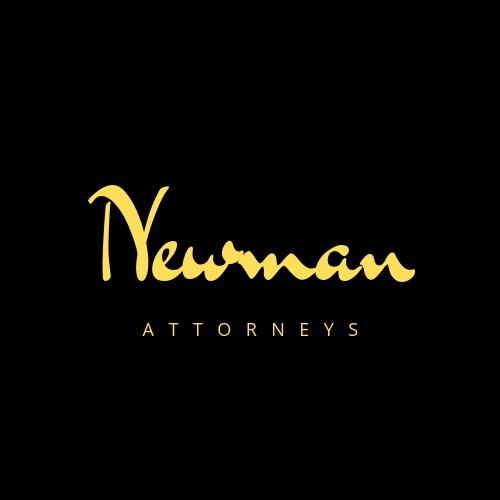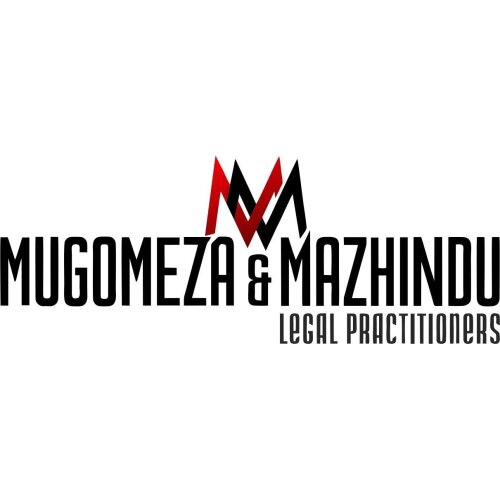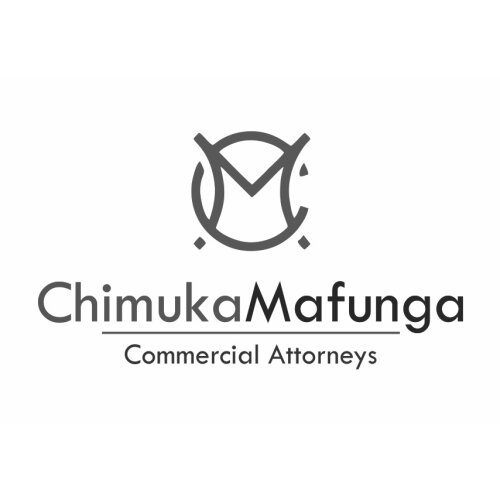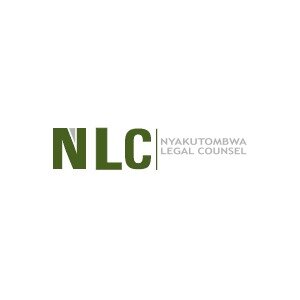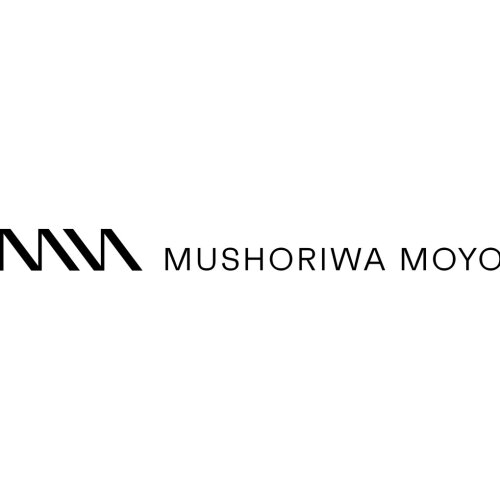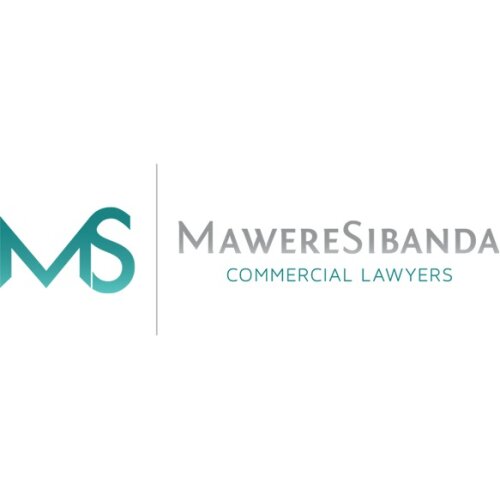Best Mining Law Lawyers in Harare
Share your needs with us, get contacted by law firms.
Free. Takes 2 min.
List of the best lawyers in Harare, Zimbabwe
About Mining Law in Harare, Zimbabwe
Mining Law in Harare, Zimbabwe is primarily governed by the Mines and Minerals Act [Chapter 21:05], which provides legal principles and procedures for the exploration, extraction, and processing of minerals within the country. Mining Law covers a wide range of minerals including gold, diamonds, platinum, and base metals. The capital city, Harare, serves as a hub for administrative processes and legal matters related to mining activities. The law not only regulates how minerals are prospected and acquired but also addresses environmental, safety, and community obligations involved in mining operations.
Why You May Need a Lawyer
There are several reasons why people involved in mining in Harare may require legal assistance. Common situations include:
- Applying for mining rights or prospecting licenses
- Negotiating and drafting joint venture or partnership agreements
- Handling disputes over land ownership or mineral claims
- Resolving environmental compliance issues
- Dealing with regulatory authorities or administrative appeals
- Managing mergers, acquisitions, or shareholding changes in mining companies
- Understanding local content laws and community benefit obligations
- Addressing export controls and royalty payments
- Representing clients in cases of unlawful mining or mineral theft
- Interpreting complex statutory requirements and recent legal updates
A specialist mining lawyer can help navigate these legal challenges, safeguard interests, and ensure compliance with all regulatory requirements.
Local Laws Overview
In Harare, key aspects of Mining Law are governed under the Mines and Minerals Act [Chapter 21:05], aligned with various regulations and statutory instruments. Some important legal points include:
- Licensing and Permits: All prospecting and mining activities require a valid license or permit issued by the Ministry of Mines and Mining Development.
- Land Ownership and Mineral Rights: Minerals in Zimbabwe are owned by the State. The right to mine is obtained through claims, leases, or special grants.
- Regulatory Compliance: Regular inspection of operations, environmental impact assessments, and periodic reporting are mandatory.
- Environmental Protection: Operators must comply with environmental laws, including Environmental Management Act provisions and rehabilitation obligations.
- Community and Labour Law: Mining companies have responsibilities toward affected communities and must adhere to national employment laws.
- Royalties and Taxes: Miners are subject to royalties payable to the State, taxes, and must comply with foreign exchange and export regulations.
Local variations and updates may apply, making it important to seek current advice or assistance before proceeding.
Frequently Asked Questions
What permits or licenses do I need to start mining in Harare?
You need to obtain a prospecting license and, depending on the minerals involved, a mining claim or mining lease from the Ministry of Mines and Mining Development. Additional environmental permits may also be required.
Who owns the minerals in Zimbabwe?
All minerals in Zimbabwe are vested in the State. Individuals or companies can only mine after obtaining the necessary rights and permits issued by the government.
How do I apply for a mining claim?
The application involves submitting required documents and fees to the local Mining Commissioner, marking out the desired area, and completing registration procedures.
What is the role of the Ministry of Mines and Mining Development?
This government ministry is responsible for issuing licenses, overseeing mining operations, enforcing mining laws, and promoting sustainable mining.
Are there requirements for environmental protection?
Yes, before commencing operations, miners must submit an environmental impact assessment and are required to rehabilitate mining sites after completion of activities.
Can foreigners own mining rights in Zimbabwe?
Foreigners can acquire mining rights, but certain restrictions may apply and policy changes can affect ownership structure and local participation requirements.
How are disputes over mining claims resolved?
Disputes are usually handled first by the Mining Commissioner, with further appeals possible to the High Court or administrative tribunals if needed.
What are royalties in mining and how are they calculated?
Royalties are payments to the State for the right to extract minerals. Rates are typically a percentage of the value of minerals produced and are set by the government for each type of mineral.
Is it possible to transfer or sell mining claims?
Yes, claims and mining rights can be transferred or sold, but the transfer must be registered with the Ministry of Mines and Mining Development.
What should I do if my mining rights are challenged or revoked?
You should consult a mining lawyer immediately. Legal proceedings or administrative appeals are often required to challenge or resolve such issues.
Additional Resources
For those needing further information or assistance in Mining Law, the following resources may be valuable:
- Ministry of Mines and Mining Development - the chief regulatory authority for all mining activities
- Chamber of Mines of Zimbabwe - industry association offering guidance and support to mining professionals
- Environmental Management Agency - responsible for environmental regulation and approvals
- Zimbabwe Lawyers for Human Rights - for legal support regarding community or human rights issues
- Zimbabwe Mining Development Corporation - involved in investment and development within the sector
Next Steps
If you need legal assistance in Mining Law in Harare, Zimbabwe, it is recommended that you:
- Gather all documentation related to your mining interests, permits, claims, or disputes
- Contact a lawyer who specializes in Mining Law for a consultation
- Clearly outline your concerns or the nature of your legal issue
- Work with your legal advisor to explore available options, prepare documentation, and engage with relevant authorities
Mining Law in Harare can be intricate, with serious financial and legal consequences for non-compliance. Engaging a qualified professional helps safeguard your interests and ensures you are fully compliant with all local laws.
Lawzana helps you find the best lawyers and law firms in Harare through a curated and pre-screened list of qualified legal professionals. Our platform offers rankings and detailed profiles of attorneys and law firms, allowing you to compare based on practice areas, including Mining Law, experience, and client feedback.
Each profile includes a description of the firm's areas of practice, client reviews, team members and partners, year of establishment, spoken languages, office locations, contact information, social media presence, and any published articles or resources. Most firms on our platform speak English and are experienced in both local and international legal matters.
Get a quote from top-rated law firms in Harare, Zimbabwe — quickly, securely, and without unnecessary hassle.
Disclaimer:
The information provided on this page is for general informational purposes only and does not constitute legal advice. While we strive to ensure the accuracy and relevance of the content, legal information may change over time, and interpretations of the law can vary. You should always consult with a qualified legal professional for advice specific to your situation.
We disclaim all liability for actions taken or not taken based on the content of this page. If you believe any information is incorrect or outdated, please contact us, and we will review and update it where appropriate.



